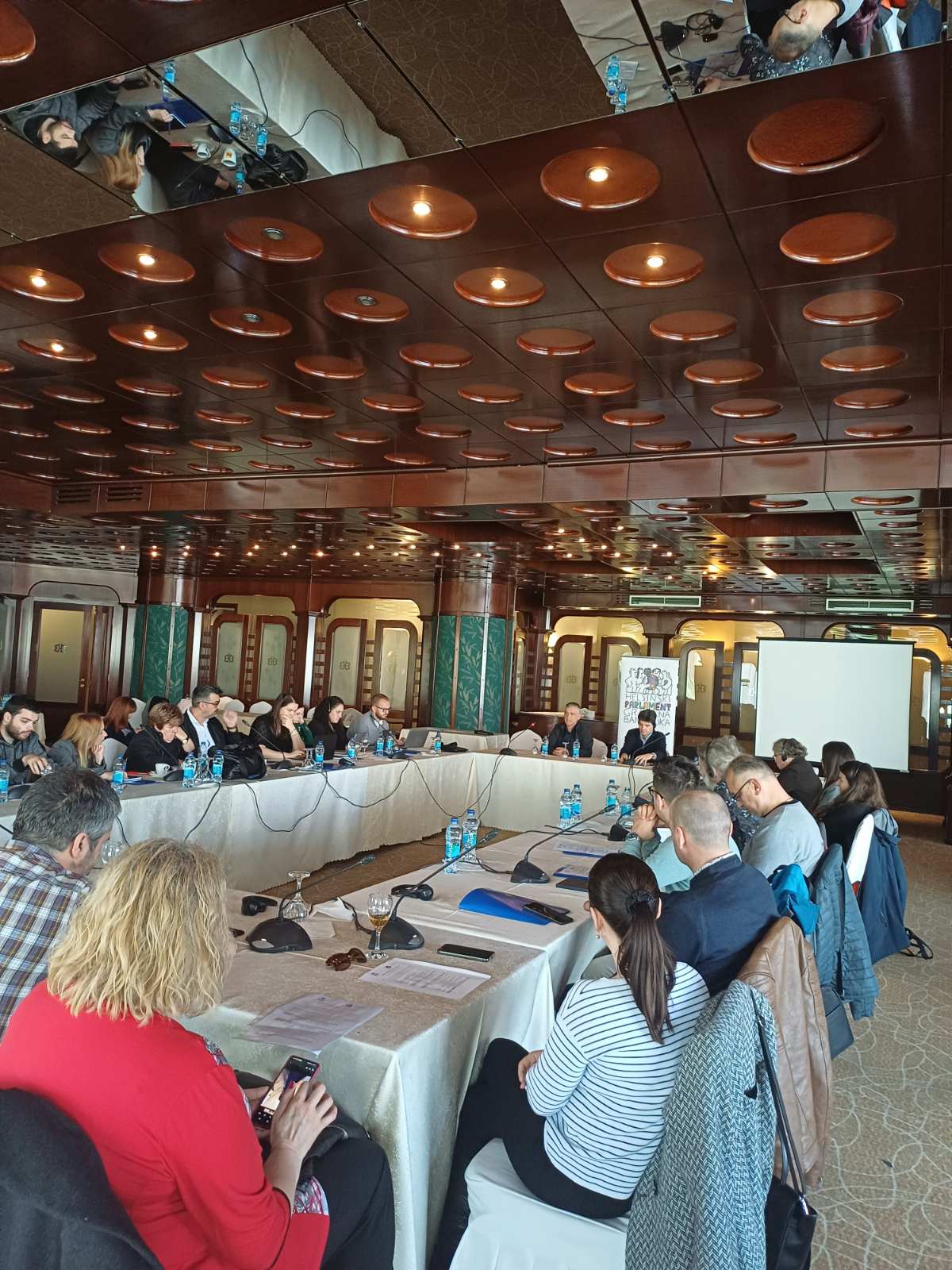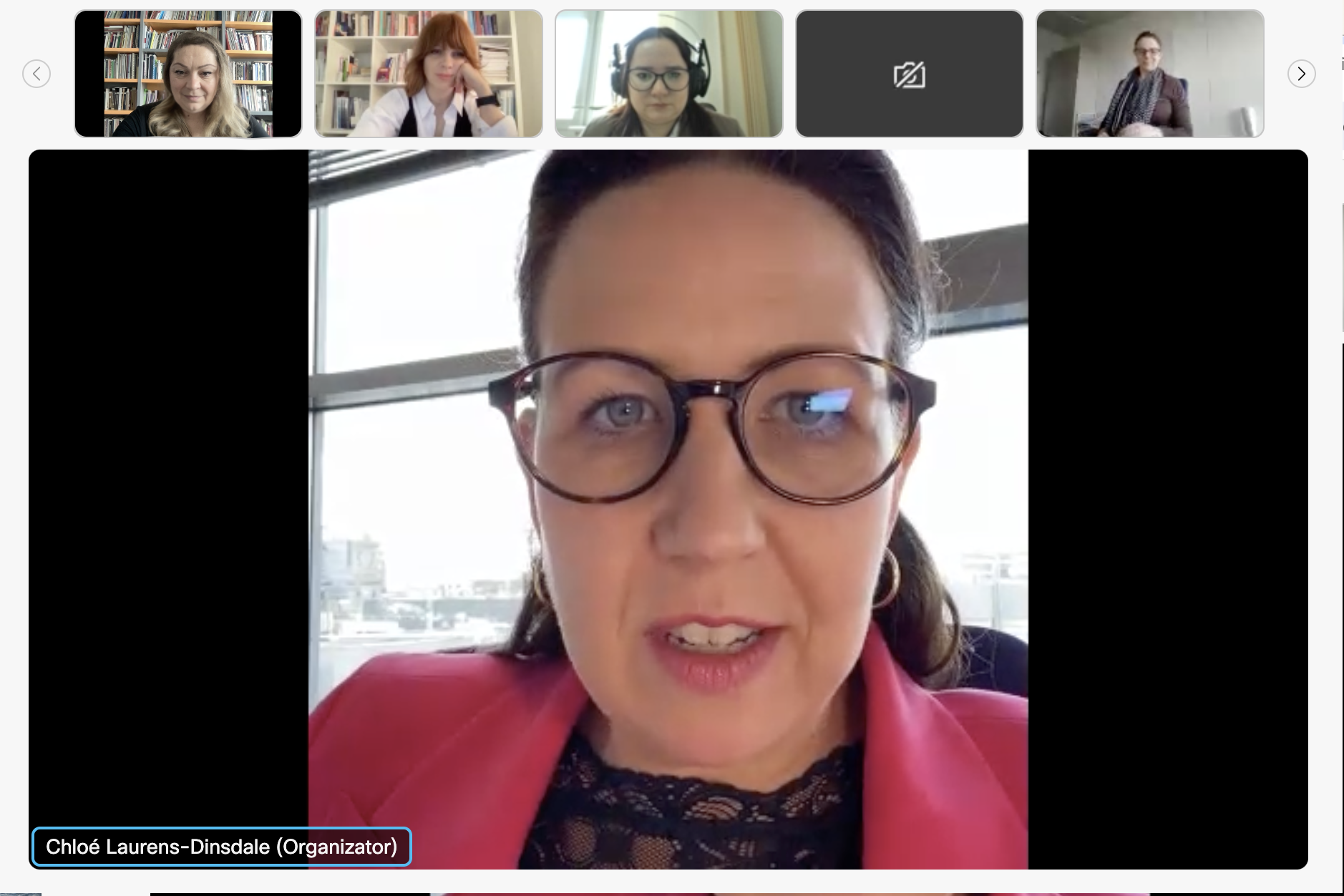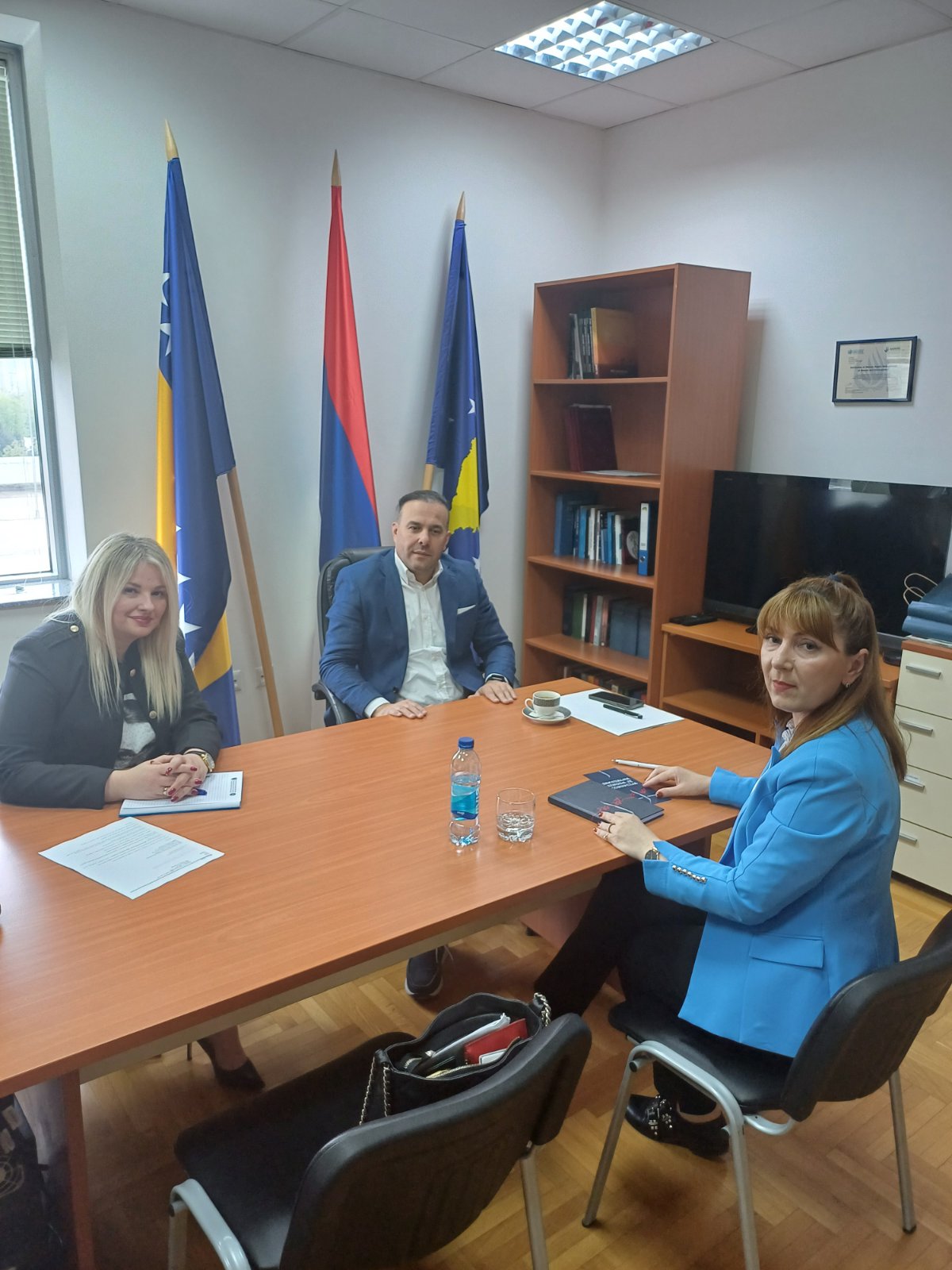Different norms, rules, restrictions have always been imposed on the female body. How it should look, how it should behave, what it is allowed to do. Everyone had the right to vote on it, but least or almost never the woman, to whom it belongs. Over time, women have fought for their place, rights and a better position, but they are still forced to fight. In order to keep what they have already won. Like the right to make decisions about thier own body. Abortion rights.
Written by: Vanja Stokić; Video: Ajdin Kamber; Photo: Pixabay
Women’s fathers determined whom they would marry, husbands what they could do with their bodies, rulers how they should behave. For too long women’s body has been reduced to only one function – giving birth.
“It seems to me that only by obtaining the right to make independent decisions about one’s body, that is, the right to terminate a pregnancy, a woman’s body partially returned to the woman. Only with that right, to be able to decide about her body, her body became her own again, a woman’s. This is now being called into question again in some countries or taken away completely. The body is an integral, autochthonous, inseparable part of human beings, and all human beings should have the right to dispose of their bodies as they wish,” said Dragana Dardić from the Helsinki Citizens’ Assembly Banja Luka.
All over the world, right-wing, extreme currents are gaining strength, which again want to reduce women to the level of man’s possessions. Poland has banned abortions, which means women have to go to other countries to have the procedures done. Some of them even die from complications during pregnancy, even though it is an abortion for medically justified reasons. In neighboring Croatia, doctors are called to conscience, which allows them to refuse to perform abortions on women because it is not in accordance with their beliefs. In the US, the right to abortion has also been restricted.
Although there are still no indications of similar initiatives in Bosnia and Herzegovina, we have reason to worry.
“Everything that is happening, especially in the region and neighboring countries, but also in Europe and in the world, is reflected in our area. And especially bearing in mind that the influence of religious communities is getting stronger in our country and that today we are witnessing a kind of institutionalization of religion. We should be careful, we have reason to worry. Especially because the churches were the leaders of the initiatives for a complete ban on abortion,” notes Dragana Dardić.

Dragana Dardić; Photo: Ajdin Kamber
Among other things, it is important that public institutions are guided by laws in their work and that they respect the rights of women guaranteed by those laws. Without the interference of traditional and patriarchal norms.
“In BiH, occasional actions of various organizations throughout the country are visible, which are aimed at protecting the so-called traditional values and, among other things, advocate limiting or banning termination of pregnancy. When the last Law on Conditions and Procedures for Termination of Pregnancy in the Republic of Srpska was passed in 2008, there was an initiative to limit women’s right to choose through the introduction of mandatory partner consent to termination of pregnancy, which was not supported by the legislator. It is certain that events in the world and the region affect the situation in Bosnia and Herzegovina and the views of citizens on this issue, and that we have reason to be concerned. Especially since we are a society that is deeply patriarchal and in which the socially acceptable roles of women limit their basic human rights and freedoms,” says Aleksandra Petrić from the Foundation “United Women”.
Available, but not under the same conditions
Members of the European Parliament voted at the beginning of July this year to amend the European Convention on Fundamental Rights.
“Everyone has the right to a safe and legal abortion”, are the words that will be found in the Convention.
Among those who voted against was HDZ representative from Croatia, Tomislav Sokol. He believes that this promotes the “culture of death”.
Guaranteed by laws (Law on Conditions and Procedures for Termination of Pregnancy in Republic of Srpska and the same law in Federation of BiH), abortion in Bosnia and Herzegovina is still not available to everyone under the same conditions. If it is not done for medical reasons, the patient bears the costs. Which go up to 400 BAM.
“Cantonal health insurance institutes in the FBiH, as well as Health Insurance Fund of RS, finance the costs of abortions in medically justified cases with mandatory health insurance funds, but not abortions at the request of the pregnant woman (abortion services are 100 percent paid by the patient),” the publication “The right to Abortion in BiH”, published by the Sarajevo Open Center, stated.
Due to the poor material situation, as well as the lack of information and spatial distance, some women in Bosnia and Herzegovina cannot exercise their right.
“We cannot talk about the availability of termination of pregnancy if it is free only in medically justified cases. This limits a woman’s right to make a decision about this procedure or to receive full medical assistance and health care, because it is not available to all women on an equal basis due to their economic status or the lack of medical institutions that perform procedures in all parts of the country. This is an issue that calls for systemic reform and a more active approach of government institutions in the field of health and social protection at all levels,” says Aleksandra Petrić.
A priest among doctors
Differences in the procedure also exist due to the degree of pregnancy. Women who are pregnant for no longer than 10 weeks, register at the Clinical Center of Banjaluka and bring the necessary documentation.
“Otherwise, we do not have waiting lines; the procedure ends the same day. According to our research, the first reason is that the woman simply does not want pregnancy. Then there is a social reason, medical reasons…” says the doctor of the UCC BL Vladimir Perendija.

Vladimir Perendija; Photo: Vanja Stokić
After the 10th week, it is necessary to obtain the approval of the Ethics Committee. In some cases, abortion is performed even after the 20th week. Then consent is also required.
“However, the Ethics Committee consists of two doctors specializing in gynecology and obstetrics, one specialist in neuropsychiatry, a lawyer and a social worker, a total of five members. After the tenth week, a request for termination of pregnancy is submitted within three days and the procedure for termination of pregnancy is performed within three days. Only in cases if the first-instance commission approves. In case the patient is not satisfied with the decision of the first instance commission, she turns to the second instance commission and the decision of the second instance commission is final,” says Dr. Perendija.
For eight full years, from 2012 to 2020, a member of the Ethics Committee for Termination of Pregnancy was also a priest. In one, at least officially, secular state, a priest is appointed to the Ethics Committee and given the power to decide whether a woman can have an abortion or not.
“It is absolutely unacceptable for priests to take part in making a decision on termination of pregnancy after the legal term. However, the state, for example, has already allowed the church to enter formal education through religious education classes, and although this is the optional right of children and their parents, in practice it has long been evident that there are a number of irregularities and discrimination against children whose parents are not religious. It is a private matter and the constitutionally protected right of every citizen to practice religion, but also not to practice it, therefore it should be a woman’s private right to, if she wishes, consult with a priest whether to terminate the pregnancy, as well as to do not do it if she does not want to. The inclusion of the church in the Ethics Committee of a public health institution clearly represents the imposition of religious attitudes and values with the consent of public institutions that should protect civil rights,” Aleksandra Petrić believes.
Dragana Dardić also agrees with her, reminding that religious communities are automatically against abortion. The question also arises, what about women of other religions or atheists?
“We know that they work according to church dogmas that prohibit abortion, so the presence of a person who a priori is already against the termination of the beginning of a new life is both disturbing and, I would say, terrifying,” she states.

Photo: Pexels
One of the narratives common to groups that advocate for the restriction or abolition of abortion is to shift the responsibility for the decline in the birth rate to women who have abortions. However, they are not concerned with improving conditions for parents or creating an environment in which parenting will be truly supported by institutions.
“Women are not responsible for the low birth rate of children and deciding on their reproductive rights cannot be transferred to the state and institutions. The state must provide conditions in terms of social and health protection, special concern for encouraging and ensuring the employment of women, as well as social support mechanisms (kindergartens, extended stays and other benefits), and protect the rights of pregnant women and women in labor with regards to work and labor relations, as priority measures of pronatal policy if it wants to be clearly determined in the context of protecting women’s rights. Clearly visible discrimination and violation of the rights of pregnant women and women in labor with regards to work and labor relations is our everyday life and there is no systemic reaction, which indicates that the burden of raising the birth rate is being shifted to women through the violation of their rights,” emphasizes Aleksandra Petrić.
The ban does not stop them
Limiting or banning abortion does not mean stopping it. On the contrary, they return it to dark, secret rooms, where abortions are performed illegally and in conditions that are risky for the woman’s life.
“The issue of access to safe termination of pregnancy is directly related to health protection. Numerous researches and official statistics indicate that countries with restrictive laws in this area have an increased number of illegal abortions that endanger women’s lives and often have serious consequences for their health. I believe that it is the duty of institutions and health professionals to provide accurate and objective information on this issue to the public, and I think that they are insufficiently active in this regard,” says Aleksandra Petrić.
Also, it is important to separate the advocacy for abortion and the advocacy for the right to safe termination of pregnancy. Activists and the non-governmental sector do not promote abortion or persuade women to perform it. They defend their right to do so, if it is their decision. The right to decide about their own body.





